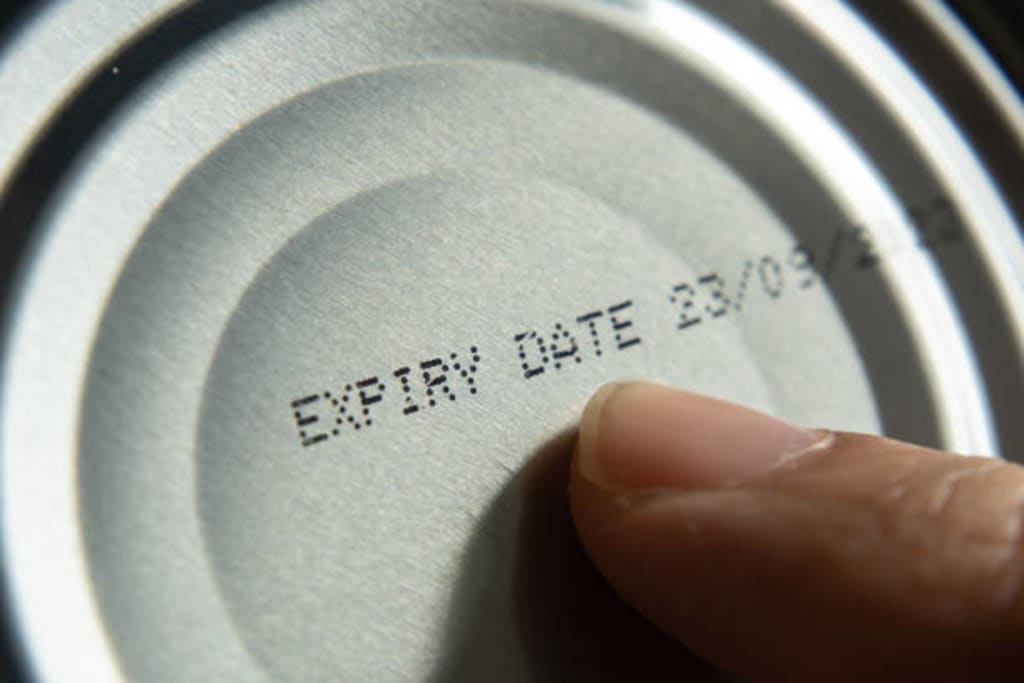Food expiry dates
What you didn't know about food expiry dates

How much of the food in your refrigerator will you throw out before it is served? Burger buns from the picnic last summer? Milk that has expired? Have your carrots lost their crunch? Every year, enormous amounts of food are wasted in nations all over the world, with the US ranking among the worst offenders. Individual households in the US account for 37% of the food waste. And about 20% of those foods are thrown away by people who don't understand what the dates on the labels mean. However, the majority of those groceries are still completely ok to eat.
What do the dates on our food tell us if they don't indicate that anything has gone bad? Prior to the 20th century, there was a much shorter distance between the place where food was produced and the place where it was consumed, and the majority of people were able to judge food's freshness by touch, smell, and sight. However, it became more difficult to determine product ages as stores started carrying processed foods.
In the 1970s, customers wanted access to the information that US supermarkets used to track how long food had been on the shelves. Many supermarkets embraced the open dating method, which is still in use today, in which food producers or retailers branded products with dates indicating their peak freshness. This nebulous statistic had nothing to do with the safety of food or expiration dates. In truth, there are typically no guidelines for which dates to use, and decisions are rarely made with any scientific support.
In order to ensure that customers will enjoy their food at its best and return for more, the majority of manufacturers and retailers are motivated to set these dates early. Thus, many goods can be consumed well after the dates indicated on the packaging. Although shelf-stable foods like pasta, cookies, and other foods may taste stale, they are not unhealthy. Food in a can can last for years as long as there are no bulging or rusting indications. Low freezer temperatures control the growth of food-poisoning microorganisms, extending the shelf life of properly maintained frozen meals.
Eggs kept in the refrigerator last for up to five weeks, and if they start to go bad, your nose will let you know. Additionally, mold, slimy surfaces, and off flavors are always indicators of ruined vegetables. Of course, there are situations in which it is preferable to be safe than sorry. Meat should be consumed or frozen within days of purchase, according to the USDA. Ready-to-eat salads, deli meats, and unpasteurized cheeses are more likely to have harmful bacteria that can elude a smell or taste test after their written dates.
Additionally, the dates on infant formula are required to be safe indications. However, even while some of these labels function as intended, the vast majority do not. In a 2019 survey of more than 1,000 Americans, over 70% claimed to check date labels to determine whether food is still edible, and nearly 60% claimed they'd throw away any food past those dates. Likewise, grocery stores and restaurants frequently do. Many professionals support regulations that mandate that date labels contain one of two standardized phrases: "Best if used by" to indicate freshness or "Use by" to indicate safety, in order to save all this waste. This answer isn't ideal, but according to some US academics, enacting these regulations at the federal level might stop some 398,000 tons of food from going to waste each year.
In order to encourage customers to use their own judgment, some UK grocery chains have removed the dates on products, so retailers may likewise try doing the same. Numerous experts also support legislation that would reward retailers and eateries for donating unsold food. At least 20 US states currently prohibit donating food that is over its expiration date, despite the fact that the federal government officially protects such gifts, due to confusion regarding dates. Even further, several nations, like France, mandate that supermarkets donate their unsold food.
No matter what your government decides, eating what you buy is the greatest way to reduce food waste! Don't forget that you typically just need your eyes, nose, and tongue to determine whether food is fit for consumption or the compost bin.
About the Creator
Enjoyed the story? Support the Creator.
Subscribe for free to receive all their stories in your feed. You could also pledge your support or give them a one-off tip, letting them know you appreciate their work.





Comments
There are no comments for this story
Be the first to respond and start the conversation.